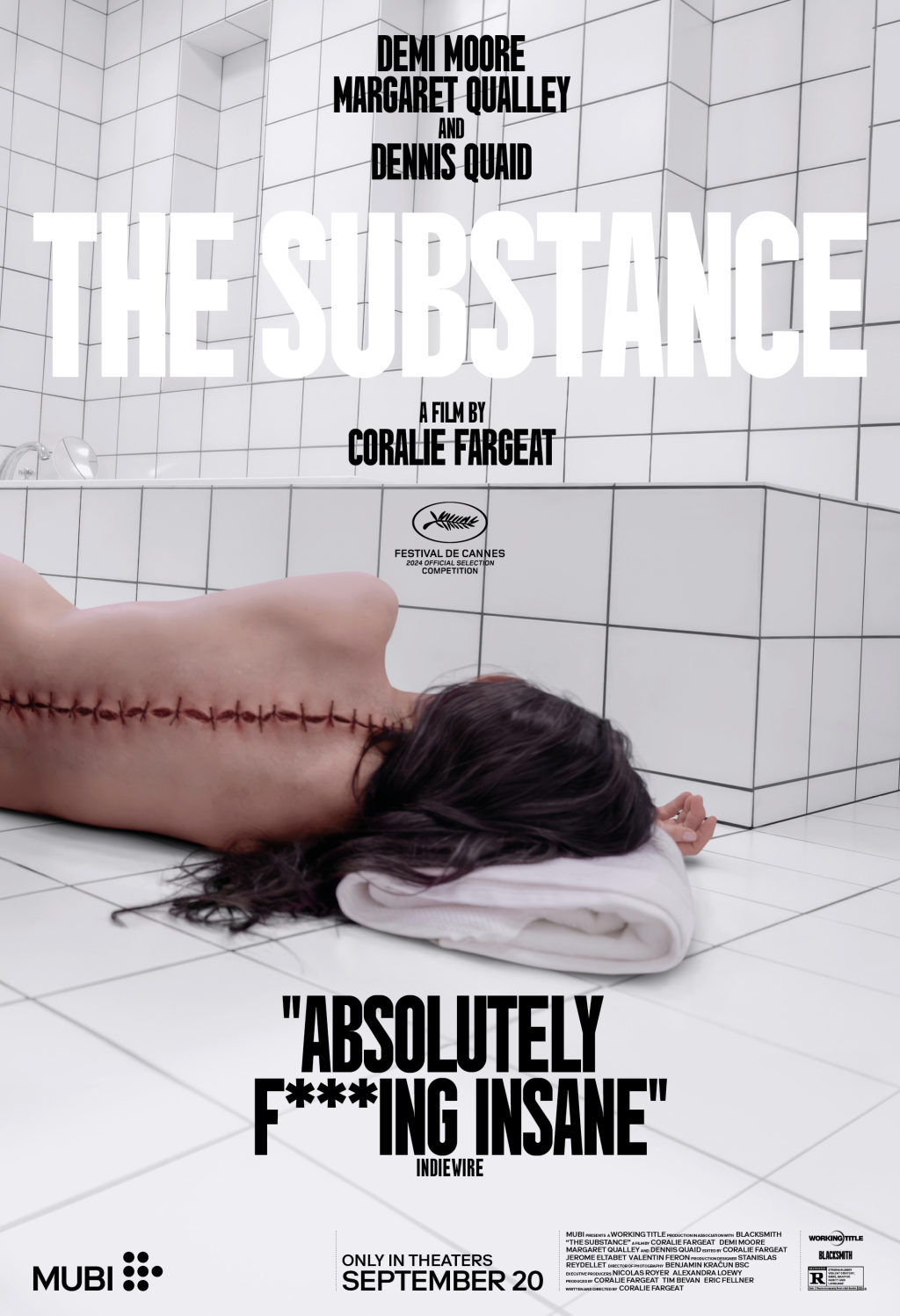
While the London-based film company MUBI may not rival Hollywood studios in scale, it specializes in producing, acquiring, and distributing relatively niche, arthouse, and genre films, along with its own streaming platform, making it a highly sought-after film label among young filmmakers. However, a recent round of funding from MUBI has left many of its film partners and users feeling like they've been stabbed in the back.

The success of "Something Substantial" has made MUBI an important force in the global independent film field.
MUBI was founded in 2007 by Turkish businessman Efe Cakarel. Last year, their release of "Something Substantial" achieved both commercial and critical acclaim, establishing them as a significant force in the global independent film scene. At the Cannes Film Festival in May of this year, MUBI outbid several competitors to secure the rights to "Die, My Love," starring Jennifer Lawrence and Robert Pattinson, for $24 million.

This year MUBI will release "Die, My Love," starring Jennifer Lawrence and Robert Pattinson.
However, also in May of this year, industry sources reported that Sequoia Capital, a Silicon Valley-based US venture capital firm, had invested $100 million in MUBI and joined the company's board of directors. This deal quickly drew criticism. Sequoia Capital is also a major investor in Kela, an Israeli defense technology startup. Founded in July 2024 by four veterans of Israeli intelligence, Kela is developing a battlefield operating system designed to help the Israeli military integrate artificial intelligence technology.
Recently, as the survival issues of the Palestinian people in Gaza have remained unresolved for a long time, the public has exerted increasing pressure on the Israeli government and relevant parties.
Mid-last week, dozens of filmmakers who have collaborated with MUBI or whose works are currently being shown on the platform signed a joint letter urging the company to sever its ties with Sequoia Capital. Perhaps due to MUBI's focus on niche, arthouse films, the signatories are mostly young directors who have just entered the industry. However, the list also includes international film industry heavyweights such as the renowned Finnish director Aki Kaurismäki (MUBI is distributing Dead Leaves), the Berlin Film Festival Golden Bear-winning Romanian director Radu Jude (MUBI is distributing Don't Expect Too Much of the World to End), and the renowned American documentary director Joshua Oppenheimer (MUBI is distributing Doomsday).

Kaurismäki's Dead Leaves is distributed by MUBI.
In this strongly worded joint letter, they demanded that MUBI publicly condemn its investor, Sequoia Capital. In response, MUBI continued to use its usual excuses over the past few months: the investor's position does not represent MUBI's position, and that the investment was only to better serve the global independent film industry.
Not long after, Eddie Huang, a Chinese-American writer who became famous for his memoir "Fresh Off the Boat," which was adapted into an American TV series of the same name, also posted a video on his personal social media, claiming that his documentary "Vice Is Broke" had been shelved after MUBI bought the copyright because he had publicly opposed their cooperation with Sequoia Capital and was therefore retaliated against.

Stills from the documentary "The Decline of Vice"
The documentary focuses on Vice, a prominent North American digital media company, and its recent problems, which stem from reckless expansion. Huang previously collaborated closely with the company, creating and hosting two seasons of the food and culture program "Huang's World" on the Vice platform. The documentary premiered at the Toronto Film Festival in September 2024, and MUBI subsequently acquired global rights, with the streaming platform slated to launch on August 29th of this year.
However, according to Huang, with the release date approaching, MUBI hadn't organized any promotional activities for the film, seemingly planning to release it online without further fanfare and then quietly withdraw it. Furthermore, after Huang questioned this, he received a call from MUBI President Jason Ropell, who told him, "We've stopped all promotion and have shelved the film. If you and the producers are willing, you can buy the rights back from us."
In Huang Yiming's view, after Sequoia Capital invested in MUBI in May, he expressed his protest online and stated that he would not personally participate in promotional activities related to "The Decline of Vice". As a result, MUBI took retaliatory measures to "set an example."
Huang also signed the joint letter, clearly agreeing with the statement that "MUBI is now linked to the genocide taking place in Gaza. We, MUBI's partners, cannot believe that a platform specializing in art films can collaborate with an investment company that is complicit in the murder of Palestinian artists and filmmakers while also serving moviegoers around the world."
MUBI, facing criticism for its funding, is now facing pressure not only from these indignant filmmakers. Earlier, institutions including the Glasgow Centre for Contemporary Arts (CCA), the National Cinematheque of Mexico, and the Bogotá Cinematheque announced their withdrawal from the MUBI Film Festival. The festival, launched in 2023, will be held annually in several cities around the world.
Last week, Chile's FIC Valdivia International Film Festival also announced that it would not screen any films produced by MUBI at the 32nd Valdivia International Film Festival in October this year in protest of their relationship with Sequoia Capital.

